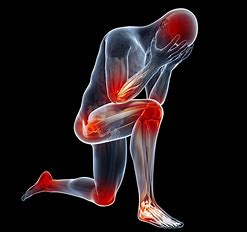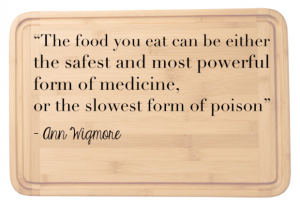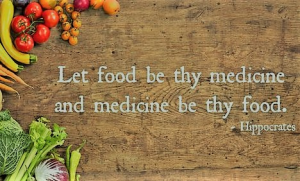 Many people suffering from chronic health conditions are frustrated; increasing number of tablets with higher and higher doses can result in horrible side effects and a limited period of relief before symptoms return. Feeling unable to control your own health can be concerning but help is at hand.
Many people suffering from chronic health conditions are frustrated; increasing number of tablets with higher and higher doses can result in horrible side effects and a limited period of relief before symptoms return. Feeling unable to control your own health can be concerning but help is at hand.
Clinical Nutrition
Clinical nutrition addresses the body as a whole rather than treating symptoms in isolation. We analyse nutritional intake to identify the correlation between nutritional deficiencies and current or potential medical problems. Recommendations for dietary changes are based on reputable, scientific evidence to ensure you have the best advice and not just opinion based on bias and dubious ‘evidence’.
Inflammation
One of the first elements that a clinical nutritionist will look at is the level of inflammation within the body and provide advice on how to reduce this. Although the inflammatory response is an important part of our immune system it is most effective in the short term for acute conditions. If it is constantly ‘on’ (known as chronic inflammation) this can cause damage to the whole body (known as systemic inflammation) and has been shown to contribute to a whole host of medical conditions including:
- cardiovascular disease,
- diabetes,
- arthritis,
- auto immune diseases
- cancer
and can significantly hinder the body’s ability to heal.
It is therefore important that systemic inflammation is reduced to natural, manageable levels. Typically, conventional treatment such as steroids are prescribed to reduce inflammation although an effective way of naturally reducing inflammation can be by limiting the amount of sugar in the diet.
Effects of Sugar
Sugar (amongst other foods) is known to contribute to a process called oxidative stress. This is where the body uses the sugar and through the metabolic process (how the body breaks it down and uses it) a waste product called a free radical is produced. These free radicals damage nearby healthy body cells causing them to become dysfunctional and even die. This process is called oxidisation and it is this which goes on to trigger the inflammatory response within the body.
The good news is that we can manage our response and reduce the levels of inflammation naturally, not only by reducing sugar but also by consuming nutrients which help reduce inflammation, known as antioxidants.
Antioxidants
 Many people will have heard of antioxidants, but most will not be aware of what they are and why they are important. Antioxidants protect our bodies from oxidative stress by negating some of the damage that the free radicals inflict on the cells in the body.
Many people will have heard of antioxidants, but most will not be aware of what they are and why they are important. Antioxidants protect our bodies from oxidative stress by negating some of the damage that the free radicals inflict on the cells in the body.
Foods which contain antioxidants include (but are not limited to):
- vegetables,
- fruit,
- green tea,
- herbs
- and spices e.g. ginger and turmeric.
As such, the equation is simple; eat fewer foods which contribute to free radical formation and eat more foods containing antioxidants to help neutralise the free radical effects.
Conclusion
In conclusion – if you are taking medication but not addressing your diet then you could be at best hindering your body’s ability to deal with your condition and at worse contributing to or even causing the symptoms you are experiencing.

Inflammation:
Systemic inflammation can be triggered by what we eat (including sugar) and has been scientifically proven to contribute to a whole host of chronic medical conditions such as heart disease, diabetes, high blood pressure, Alzheimer’s, auto immune diseases and cancer (plus many more).
What to focus on:
There are many foods which can cause the production of free radicals – sugar being a big culprit. Start by reducing this (do not substitute with sweeteners!) on a regular basis whilst also increasing your intake of vegetables (keep fruit to only 2 portions per day) and cooking with a variety of herbs and spices including ginger and turmeric.
Further investigations:
Although reducing sugar will be a good start it is important to conduct a thorough diet analysis not only to ascertain what may be contributing to your problems but also to identify foods in which you may be lacking which can actively help improve your symptoms and your body’s ability to heal and repair itself.
If you are interested in further information or an appointment for a personalised report contact me at True_Nutrition@aol.co.uk or see my website at www.true-nutrition.co.uk.
Additional note about True Nutrition
There is so much information to be found on the internet that it is difficult to know what is based on sound scientific advice (you’d be surprised how scientific data is manipulated to people’s own agendas!) and what is just opinion. True Nutrition is focused on advising and supporting you with information based on reputable scientific evidence so you know that the advice you receive will be based on facts.
Banner Photo Courtesy of
Dan Gold


